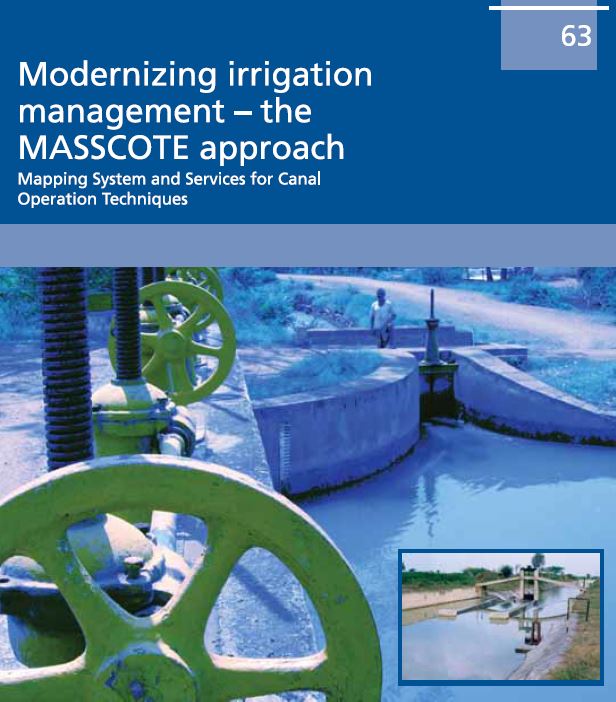modernization irrigation management, the MASSCOTE approach
The performance of many canal irrigation delivery systems is unsatisfactory in terms of: (i) water resources management; (ii) service to irrigated agriculture; and (iii) cost effectiveness of infrastructure management. In recent years, participatory approaches and management transfer reforms have been promoted as part of the solution for more cost-effective and sustainable irrigation services. Large agency-managed systems have been turned over partially or completely to various types of management bodies. However, the results have usually been disappointing. Common findings have been: (i) the new management bodies are not up to the task; and (ii) these bodies have inherited dilapidated systems and severe financial constraints. This FAO Irrigation and Drainage Paper presents a step-by-step methodology for water engineering professionals, managers and practitioners involved in the modernization of medium-scale to large-scale canal irrigation systems from the perspective of improving performance of conjunctive water supplies for multiple stakeholders. While the focus is on canal operation, the scope concerns the modernization of management. The approach consists of a series of steps for diagnosing performance and mapping the way forward in order to improve the service to users and the cost-effectiveness of canal operation techniques. This paper presents a proposed comprehensive methodology for analysing canal operation modernization, which is based on Mapping System and Services for Canal Operation Techniques (MASSCOTE). It discusses the main elements of canal operation and organization before describing the steps of the MASSCOTE approach in detail. These steps are grouped into two main parts: (i) baseline information; and (ii) a vision of water services and modernization plan for canal operation. The part relating to baseline information focuses on: the Rapid Appraisal Procedure (RAP); system capacity and behaviour (sensitivity); perturbations; water networks and water balances and the cost of operating the system. The part relating to the vision of water services and modernization plan focuses on: service to users; re-engineering of management; and options for modernization improvements. The analysis leads on to a consolidated vision of the future of the irrigation system management and a plan for a progressive modernization of irrigation management and canal operation.
